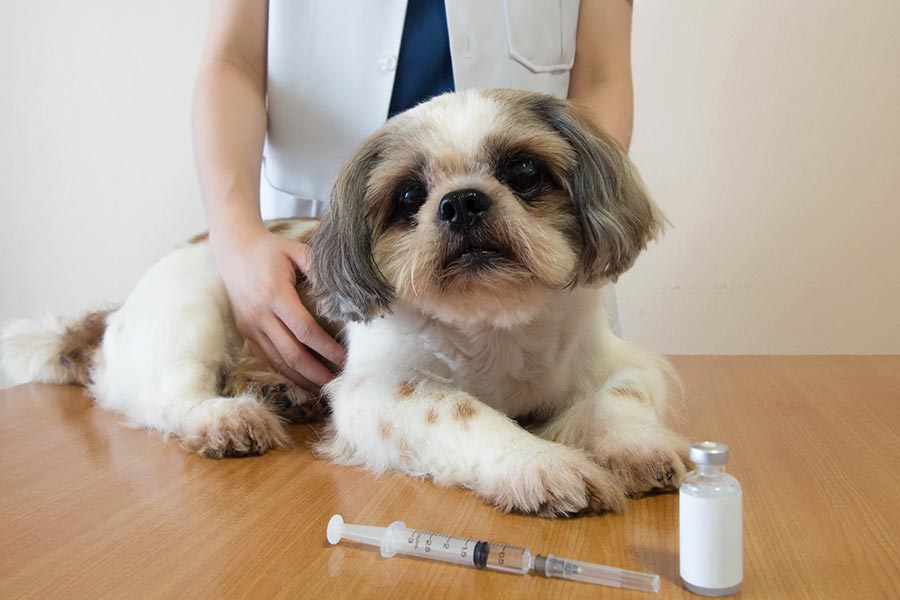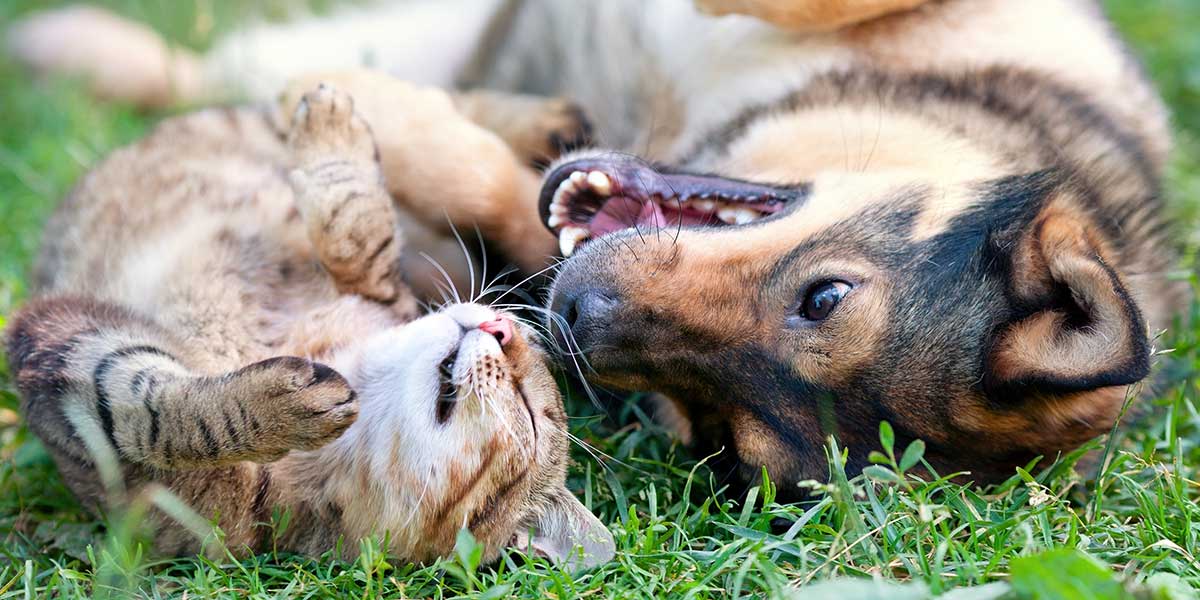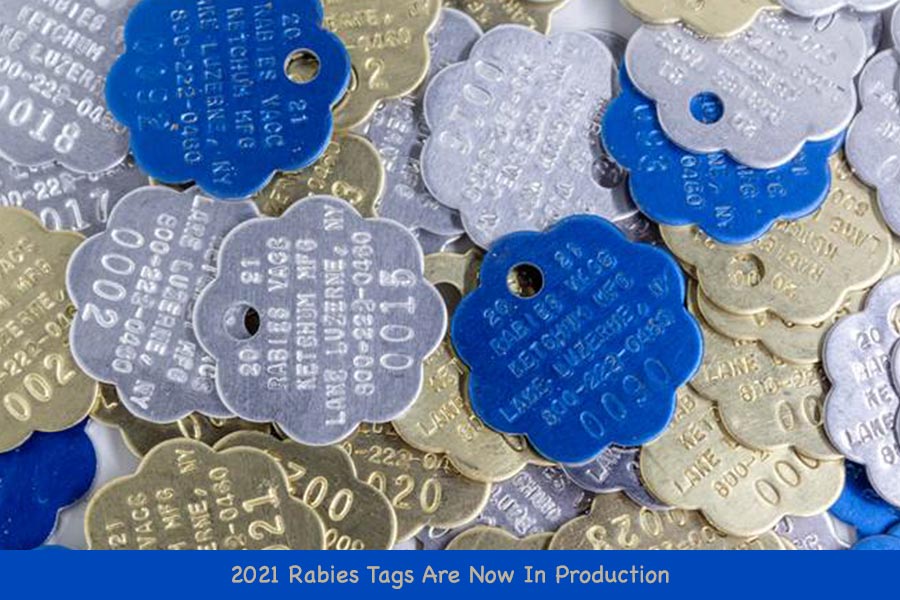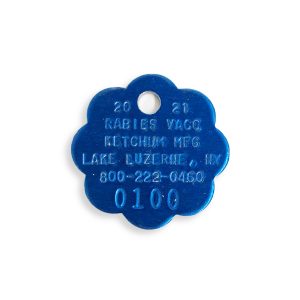Both dogs and cats, as well as ferrets, are required to have a rabies vaccination in New York State, and the veterinarian who administers the shot will give you a Rabies Tag as proof of inoculation. If you’re not a New York resident, you can find more information about your state here: Rabies Aware. You can get a rabies shot medical exemption for your dog or cat if a licensed veterinarian determines that the vaccination will adversely affect your pet’s health. If getting a rabies vaccination is a concern for you, best have a conversation with your veterinarian.
In addition, if you live in New York, you must obtain a license for your dog once it reaches the age of four months. How often that license needs to be renewed – every one, two or three years – is the option of your local government. Fees vary by county and some counties have a significantly lower fee if your dog is neutered or spayed. Cats and ferrets do not need to be licensed. And ferrets may present another issue depending upon where you reside.

If you live in the Big Apple, it’s important to know that having a pet ferret is illegal. There are some people who believe that ferrets are unpredictable and prone to vicious attacks on humans. Because they are clever escape artists, New York City made the decision to not allow them as pets.

What Pet Owners Need to Know About Rabies Vaccinations in New York State
All counties in New York, except for counties in New York City, are required to provide a free vaccination clinic every four months. You can contact your county health department for the schedule in your area.
After that first shot, your pet should receive its second rabies vaccination within one year. The second rabies shot, and all shots thereafter, are sometimes called booster shots. After the second rabies shot, you need to get additional booster shots either annually or every three years, depending on the type of vaccine administered. As mentioned above, the veterinarian, or a person under the veterinarian’s supervision, will provide you with a certificate and rabies tag as proof that your pet has been vaccinated. The veterinarian’s office will also keep a copy of your pet’s vaccination certificate.
There’s a lot more information on the NYS Pet Owners Fact Sheet, where you’ll find answers to questions like:
- What if I take my pet to a new veterinarian?
- What happens if my pet bites someone?
- Is there a fine if I don’t have my pet vaccinated?
How Do I Know If A Stray Pet’s Inoculation Is Up-to-Date?
If a pet has a rabies tag, its shape will indicate the year of inoculation. Currently, as recommended by the National Association of State Public Health Veterinarians (NASPHV), the internationally recognized standard of rabies tag by shape for most recent years is as follows:
- 2021: Rosette Shape
- 2020: Heart shape
- 2019: Bell shape
- 2018: Oval shape
The system of shapes has a full rotation every four years and serves to remind pet owners to keep their animal’s inoculations up-to-date. It also helps local public health authorities and animal control officers to determine – from a distance – whether someone’s stray pet has had its current rabies vaccine administered.
For this reason, it is vitally important that pet owners not allow a collection of past rabies tags on the pet’s collar, as if the tags are some kind of honor badge array. Therefore, every time your dog or cat is inoculated against rabies, remove the old tag from its collar and replace it with the new, current year’s rabies tag issued to you by your veterinarian.

Why Do Indoor Cats Need A Rabies Shot?
Who better to ask this question of than Elizabeth, the expert cat at CatWatch, a service of the Cornell Feline Health Center. When asked whether or not indoor cats needed vaccination against rabies, feline Elizabeth had some sound advice.
Despite my early years running free on the farm, I now reside solely indoors, and I too have wondered why I need to be bothered with rabies vaccines. I’ll share what I’ve learned from my friends at the Feline Health Center.
Most importantly, rabies is a fatal disease for people or any animal unlucky enough to be exposed through a bite or scratch to the saliva of a rabid animal. Rabid animals don’t behave like normal animals – sometimes they’re overly friendly or abnormally aggressive. We’ve heard stories about rabid raccoons breaking through screens and coming indoors, and it’s quite common for bats, which have a high incidence of rabies, to find their way indoors. Bats can enter homes or apartments through small cracks. There’s nothing that I like better than chasing a bird or bat around the house, and I’ll bet that most of my feline brethren would agree.
Elizabeth has much more to say on the subject of rabies inoculation at CatWatch. And I’m sure she’s proudly wearing her Blue Rosette Rabies Tag. I heard it’s her favorite color, because it matches her eyes.








